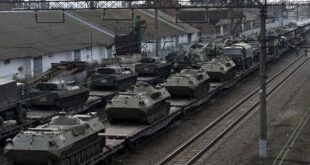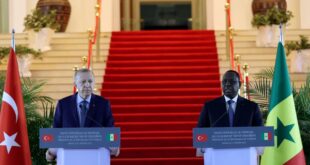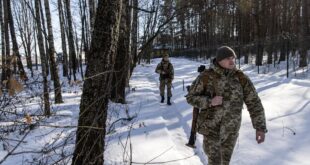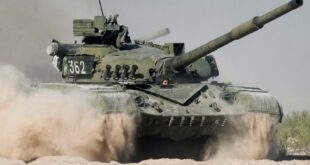When President Donald Trump lost the 2020 US presidential election to democratic candidate Joe Biden, many leaders in the Middle East and North Africa (MENA) saw an ominous warning that democracy may again take center stage in US foreign policy, with autocrats trying to consolidate power in their hands.
Read More »admin
What I heard in Munich: A lot of bold words, but little bold action
With Europe seemingly on the brink of a war, transatlantic resolve emerged as the key feature of this year’s Munich Security Conference (MSC). During the last in-person MSC in 2020, French President Emmanuel Macron presented his vision of “European independence” and “strategic autonomy.” But those terms were rarely discussed this …
Read More »Russia invades Ukraine; explosions are heard in Kyiv and other cities
As diplomats at the United Nations implored Russian President Vladimir Putin to pull back from the brink of an invasion into Ukraine, Putin announced in a nationally televised address that his country would conduct a military operation in eastern Ukraine. Explosions have been heard by NPR correspondents in the capital …
Read More »UN to CAR Military, Russian Mercenaries: Stop Obstructing Rights Investigations
The United Nations’ independent expert on human rights in the Central African Republic says the government and its Russian allies should stop obstructing investigations. The U.N.’s Yao Agbetse says the C.A.R. military and Russian mercenaries prevent access for U.N. investigators and are believed responsible for nearly half the country’s rights …
Read More »Erdogan seeks to boost ties with Africa in four-day visit
The Turkish president wants to boost business ties with African countries. Turkey’s president has promised to boost relations with African countries as he visited the Senegalese capital Dakar during a four-day tour of Central and West Africa. “We will continue to enhance our relations with African countries on the basis …
Read More »Russian invasion risks pushing families across Middle East and North Africa into severe hunger
Families who already face skyrocketing food prices could see the cost of staple items climb even higher if supply chains are disrupted The threat of a Russian invasion of Ukraine is causing food prices to fluctuate, and risks pushing families across the Middle East and North Africa into severe hunger. …
Read More »Russia Steadily Rebuilding Presence in Africa
Russia has drawn the world’s attention with its aggressive stance toward Ukraine. The former Soviet power has been rebuilding ties with Africa more quietly, strengthening economic and military cooperation, but also raising Western concerns about its tactics and goals there. Russian flags waved in Burkina Faso’s capital following January’s military …
Read More »Opinion: A path out of the Ukraine crisis
Russia’s invasion of Ukraine might come “any day now,” the Biden administration warns, with intelligence rumors marking Wednesday as a likely date. If Russia does invade, the United States and its allies have pledged to impose “severe economic sanctions” on Russia. The result would be horrible casualties in Ukraine, and, …
Read More »Are Russia and America Headed Towards a Disastrous Conflict Over Ukraine?
President Joe Biden stated today that Russian president Vladimir Putin has made the decision to invade Ukraine. Watching President Joe Biden state on Friday afternoon that he believes Russian president Vladimir Putin has made the decision to go to war over Ukraine and to attack Kyiv itself, I recalled a …
Read More »Dodik condemns Germany’s Baerbock on country position
Milorad Dodik, the Serb member of tripartite BiH Presidency, has slammed German Foreign Minister Annalena Baerbock over her alleged stance on the country’s troubles. Baerbock is set to visit BiH in the coming days, klix.ba, a news portal close to the Bosniak ethnic group, reported. “She’s telling lies… and is …
Read More » Eurasia Press & News
Eurasia Press & News








